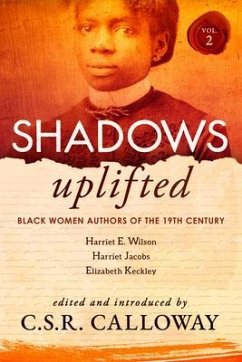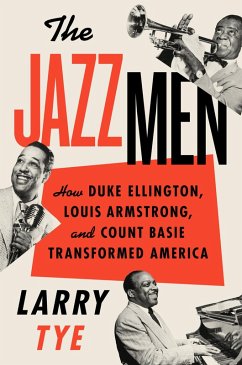
Touring the Antebellum South with an English Opera Company (eBook, ePUB)
Anton Reiff's Riverboat Travel Journal
Redaktion: Burden, Michael

PAYBACK Punkte
8 °P sammeln!
The diary of Anton Reiff Jr. (c. 1830-1916) is one of only a handful of primary sources to offer a firsthand account of antebellum riverboat travel in the American South. The Pyne and Harrison Opera Troupe, a company run by English sisters Susan and Louisa Pyne and their business partner, tenor William Harrison, hired Reiff, then freelancing in New York, to serve as musical director and conductor for the company's American itinerary. The grueling tour began in November 1855 in Boston and then proceeded to New York, Philadelphia, Baltimore, Pittsburgh, and Cincinnati, where, after a three-week ...
The diary of Anton Reiff Jr. (c. 1830-1916) is one of only a handful of primary sources to offer a firsthand account of antebellum riverboat travel in the American South. The Pyne and Harrison Opera Troupe, a company run by English sisters Susan and Louisa Pyne and their business partner, tenor William Harrison, hired Reiff, then freelancing in New York, to serve as musical director and conductor for the company's American itinerary. The grueling tour began in November 1855 in Boston and then proceeded to New York, Philadelphia, Baltimore, Pittsburgh, and Cincinnati, where, after a three-week engagement, the company boarded a paddle steamer bound for New Orleans. It was at that point that Reiff started to keep his diary.
Diligently transcribed and annotated by Michael Burden, Reiff's diary presents an extraordinarily rare view of life with a foreign opera company as it traveled the country by river and rail. Surprisingly, Reiff comments little on the Pyne-Harrison performances themselves, although he does visit the theaters in the river towns, including New Orleans, where he spends evenings both at the French Opera and at the Gaiety. Instead, Reiff focuses his attention on other passengers, on the mechanics of the journey, on the landscape, and on events he encounters, including the 1856 Mardi Gras and the unveiling of the statue of Andrew Jackson in New Orleans's Jackson Square.
Reiff is clearly captivated by the river towns and their residents, including the enslaved, whom he encountered whenever the boat tied up. Running throughout the journal is a thread of anxiety, for, apart from the typical dangers of a river trip, the winter of 1855-1856 was one of the coldest of the century, and the steamer had difficulties with river ice.
Historians have used Reiff's journal as source material, but until now the entire text, which is archived in Louisiana State University's Special Collections in Hill Memorial Library, has only been available in its original state. As a primary source, the published journal will have broad appeal to historians and other readers interested in antebellum riverboat travel, highbrow entertainment, and the people and places of the South.
Diligently transcribed and annotated by Michael Burden, Reiff's diary presents an extraordinarily rare view of life with a foreign opera company as it traveled the country by river and rail. Surprisingly, Reiff comments little on the Pyne-Harrison performances themselves, although he does visit the theaters in the river towns, including New Orleans, where he spends evenings both at the French Opera and at the Gaiety. Instead, Reiff focuses his attention on other passengers, on the mechanics of the journey, on the landscape, and on events he encounters, including the 1856 Mardi Gras and the unveiling of the statue of Andrew Jackson in New Orleans's Jackson Square.
Reiff is clearly captivated by the river towns and their residents, including the enslaved, whom he encountered whenever the boat tied up. Running throughout the journal is a thread of anxiety, for, apart from the typical dangers of a river trip, the winter of 1855-1856 was one of the coldest of the century, and the steamer had difficulties with river ice.
Historians have used Reiff's journal as source material, but until now the entire text, which is archived in Louisiana State University's Special Collections in Hill Memorial Library, has only been available in its original state. As a primary source, the published journal will have broad appeal to historians and other readers interested in antebellum riverboat travel, highbrow entertainment, and the people and places of the South.
Dieser Download kann aus rechtlichen Gründen nur mit Rechnungsadresse in A, D ausgeliefert werden.













